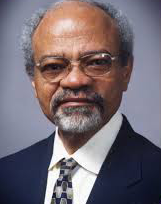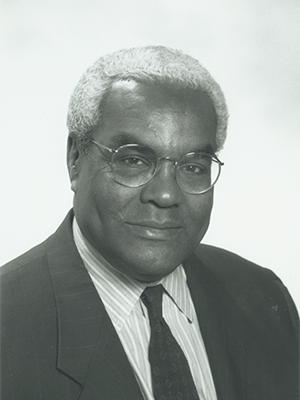Downstate’s Black Gynecologic Oncology Trailblazers
By Office of the President | Feb 20, 2024
The upcoming June 2024 issue of Science Direct promises to deliver an illuminating article spotlighting the remarkable contributions of African American trailblazers in the field of gynecologic oncology. This insightful piece will shine a spotlight on Downstate’s pivotal role in shaping the landscape of this specialized field, highlighting true pioneers and role models in the fight against bigotry and racism in medicine.
Gynecologic Oncology, a specialty that achieved board certification in 1973, encountered a significant lack of Black physicians in its early years from 1968 to 1972. Nonetheless, this trend was reversed when the first three board-certified Black physicians in this field emerged, all with connections to SUNY Downstate/Kings County Hospital, a pioneering institution in gynecologic oncology training.
 Edward Savage Jr., M.D., completed the Gynecologic Oncology fellowship in 1969 and left an indelible mark
on the field. He went on to establish the Division of Gynecologic Oncology at Charles
R. Drew University in Los Angeles in 1973. He later assumed the roles of medical director
at the King-Drew Medical Center and dean of clinical affairs at Charles R. Drew University
of Science and Medicine. Dr. Savage’s contributions extended beyond clinical practice;
he was revered as a mentor and educator, guiding numerous Black academicians in their
research endeavors.
Edward Savage Jr., M.D., completed the Gynecologic Oncology fellowship in 1969 and left an indelible mark
on the field. He went on to establish the Division of Gynecologic Oncology at Charles
R. Drew University in Los Angeles in 1973. He later assumed the roles of medical director
at the King-Drew Medical Center and dean of clinical affairs at Charles R. Drew University
of Science and Medicine. Dr. Savage’s contributions extended beyond clinical practice;
he was revered as a mentor and educator, guiding numerous Black academicians in their
research endeavors.
 Similarly, John G. Boyce, M.D., another Downstate fellowship graduate, made significant strides in gynecologic oncology.
Serving as director of Obstetrics and Gynecology at Kings County Hospital and later
chairing the department at Downstate, Dr. Boyce played a pivotal role in elevating
Downstate’s Gynecologic Oncology program to national prominence. Under his leadership,
the program participated in the National Cancer Institute’s Gynecology Oncology Group,
facilitating access to cutting-edge research protocols and enrolling a diverse patient
population in clinical trials.
Similarly, John G. Boyce, M.D., another Downstate fellowship graduate, made significant strides in gynecologic oncology.
Serving as director of Obstetrics and Gynecology at Kings County Hospital and later
chairing the department at Downstate, Dr. Boyce played a pivotal role in elevating
Downstate’s Gynecologic Oncology program to national prominence. Under his leadership,
the program participated in the National Cancer Institute’s Gynecology Oncology Group,
facilitating access to cutting-edge research protocols and enrolling a diverse patient
population in clinical trials.
 Completing this trio of pioneers is Leslie A. Walton, M.D., a distinguished graduate of Downstate’s College of Medicine. With extensive contributions
to the field, including over 100 published manuscripts and co-authorship of a renowned
textbook on gynecologic surgery, Dr. Walton’s impact extended far beyond clinical
practice. He served as a senior examiner for the ABOG and was recognized as an expert
voice on women’s reproductive rights.
Completing this trio of pioneers is Leslie A. Walton, M.D., a distinguished graduate of Downstate’s College of Medicine. With extensive contributions
to the field, including over 100 published manuscripts and co-authorship of a renowned
textbook on gynecologic surgery, Dr. Walton’s impact extended far beyond clinical
practice. He served as a senior examiner for the ABOG and was recognized as an expert
voice on women’s reproductive rights.
The collective influence of these three physicians, who honed their skills at SUNY Downstate between 1967 and 1971, reverberated throughout the medical community. Their commitment to improving healthcare in underserved communities and their dedication to mentorship paved the way for future generations of Black gynecologic oncologists. To honor their legacy, the Savage Boyce Walton Gynecologic Oncology Honor Society was established in 2004, recognizing Black professionals who embody their values and contribute to the National Medical Association.
The achievements of Drs. Savage, Boyce, and Walton epitomize the spirit of innovation and inclusivity, leaving an indelible mark on the field of gynecologic oncology and cementing their status as true pioneers in the medical community.
Camille Clare, M.D., Chair of Obstetrics and Gynecology, is one of the authors of this article.